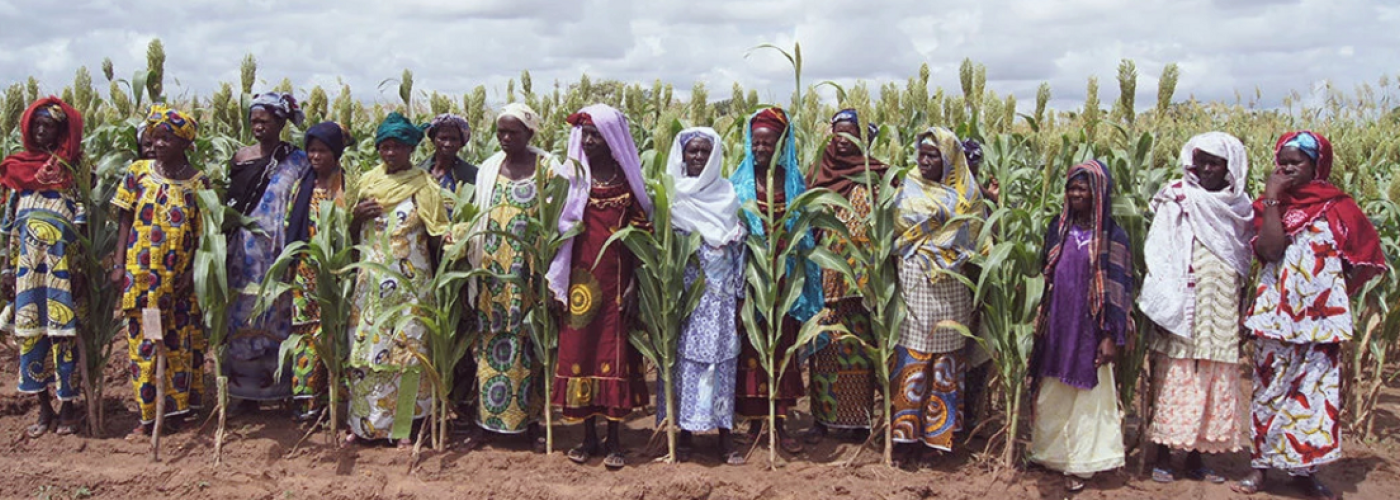Seeds2B Helps Smallholder Farmers to Access Good Seeds in Sub-Saharan Africa
Image

The population of Sub-Saharan Africa (SSA) is currently estimated at 1.2 billion people,1
Starting strong for a successful production
Can you grow a good crop without good seed? There is now a clear consensus around the world that improved seed is a major contributor to increased crop yield and agricultural productivity.4
Farmers have limited access to seeds with a range of high-performing and adaptable varieties that meet farmers’ and customers’ needs. Quality seed and improved genetics have been shown to contribute substantially towards productivity gains for farmers. However, adoption rates of modern varieties remain stubbornly low in SSA due to limited access and awareness. Often, quality seed is only available for 20% - 30% of the area, with considerable variations between crops and countries.7
Seeds2B aims to enhance the smallholder farmers' accessibility to high-quality seeds of the specific varieties they need
In 2012, the Syngenta Foundation for Sustainable Agriculture (SFSA) launched its seeds program called “Seeds2B” (Seeds-to-Business) in East, West and Southern Africa, with the ambition to contribute to the improvement of SHF’s access to good quality seeds. Building on Seeds2B’s experience and achievements since 2012, the USAID has invested since 2017 in Seeds2B to co-fund the Partnership for Seed technology Transfer in Africa (PASTTA) in a Global Development Alliance with SFSA. The first phase of PASTTA (2017-2022) was implemented in Kenya, Uganda, Malawi, Mali, and Senegal. The final project performance report for PASTTA was published in 2023, available here.
How does Seeds2B work?
The Seeds2B methodology is based on a unique product life cycle approach consisting of 12 stages starting from “product” (variety) concept and culminates with the exit of the products from the market. In between, there are several stages related to variety creation, selection, registration, introduction, commercialization, etc.

Seeds2B focuses its actions on stages 5 to 8, which consist of the final selection of the best candidate varieties to be shortlisted, registered, and successfully introduced to the market. It is in this area (stages 5 to 8) that we identified the greatest needs in terms of coordination, partnership development, partners’ capacity building and resource mobilization. Despite substantial investments in research, the proportion allocated to disseminating new technologies remains insufficient, leading to a low rate of adoption by farmers.
This Product Life Cycle framework follows a data-driven process, and decisions are made at each stage to advance the best products to the next stage, based on relevant data. Over the past few years, we co-developed with Rezonanz Group the Quick Trials application, a cloud-based solution designed to collect, consolidate and analyze all trial-related data and support decision-making process. By end of 2023, Seeds2B will also release the first version of the seed variety commercialization toolkit, a web-based platform that brings together around 30 tools to support practitioners from seed public and private sectors in successfully creating, selecting, and commercializing varieties demanded by farmers, consumers and other value-chain actors.
In Africa, Seeds2B has implementation teams in Senegal, Mali, and Kenya, and has partnered with the African Agricultural Technology Foundation (AATF) to implement PASTTA in Uganda and Malawi. The role of the implementation teams is crucial in understanding the context and needs. They also play a critical role in interacting with key local public and private stakeholders and building the necessary synergies between them to successfully make available to SHF the varieties they need.
What has PASTTA achieved?
This report presents the main activities and achievements of the five-year PASTTA project (2017 and 2022) implemented in Senegal, Mali, Kenya, Uganda and Malawi on different crops such as cereals (sorghum, pearl millet, maize), legumes (soybean, cowpea, groundnut) and tubers (potato). In total, PASTTA has contributed to the successful introduction and/or commercialization of more than fifty varieties (mostly from the public sector). This intervention has resulted in approximately $15 million in seed revenue for local seed companies while around 350,000 farmers have accessed and planted seeds of these new varieties on some 200,000 hectares of land. More importantly, PASTTA has contributed to bring sustainable impact by developing partners’ capacities, infrastructures, and relationships among key actors of targeted value chains.
Finally, it is worth noting that seed policy constituted one of the fundamental pillars of PASTTA. Together with the New Markets Lab, several capacity building initiatives were conducted with local stakeholders on topics like licensing and intellectual property rights. Several publications were produced (links available in the report) to assess the functioning of national and regional seed systems, but also to examine specific crop value chain policies.
Looking into the future… Following this five-year phase, PASTTA still continues in Kenya, Mali and Senegal on the same crops with the same approach in order to capitalize on the progress made since 2017 and continue to improve SHF’s access to good quality seeds in a sustainable way. In 2023, the project also started in Rwanda in collaboration with the International Potato Center, with a specific focus on potato.
1 - https://data.worldbank.org/indicator/SP.POP.TOTL?locations=ZG
2 - https://www.mckinsey.com/industries/agriculture/our-insights/winning-in-africas-agricultural-market
3 - https://www.ifad.org/thefieldreport/
4 - https://www.ers.usda.gov/webdocs/publications/42517/13599_aib786d_1_.pdf?v=0
5 - https://www.researchandmarkets.com/reports/5766644/seeds-global-market-report#:~:text=The%20global%20seeds%20market%20grew,least%20in%20the%20short%20term
6 - https://www.spglobal.com/commodityinsights/en/ci/research-analysis/commercial-seed-markets-in-africa-2021.html
7 - Commercial seed markets in Africa, HIS Markit, Crop science report, Jake Cooley, 2021.

